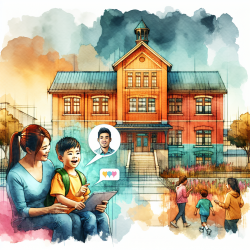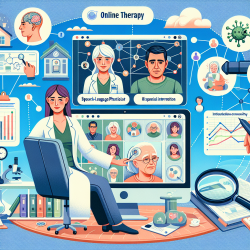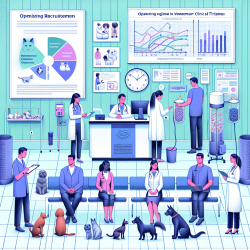Introduction
As practitioners dedicated to the well-being of children, we constantly seek innovative methods to enhance recovery and improve outcomes. The recent study on the Mobile Critical Care Recovery Program (m-CCRP) for acute respiratory failure (ARF) survivors offers groundbreaking insights that can be translated into practice, not only for adults but potentially for pediatric populations as well. This blog explores the study's findings and encourages practitioners to consider how these insights might be applied to improve care strategies.
The Study: A Brief Overview
The m-CCRP study, a two-arm randomized clinical trial, involved 620 patients with ARF who required mechanical ventilation. The study aimed to assess the efficacy of a mobile, collaborative critical care model in improving the quality of life (QOL) of ARF survivors over 12 months. The intervention group received personalized care plans developed by an interdisciplinary team, while the control group received standard printed materials and reminders.
Key Findings
The primary outcome of the study was a significant improvement in the QOL of ARF survivors in the intervention group compared to the control group. Secondary outcomes included enhanced cognitive, physical, and psychological functions and reduced healthcare utilization.
Implications for Practice
For practitioners working with children, the m-CCRP study underscores the importance of a comprehensive, interdisciplinary approach to care. Here are some actionable insights:
- Interdisciplinary Collaboration: Engage a team of specialists to address the multifaceted needs of patients, ensuring a holistic approach to recovery.
- Personalized Care Plans: Develop individualized care plans that consider the unique needs and goals of each child and their family.
- Mobile and Accessible Interventions: Consider implementing mobile interventions that allow for care to be delivered in the child's home or community, reducing the need for travel and enhancing accessibility.
- Continuous Feedback and Adjustment: Utilize dynamic feedback mechanisms to regularly assess and adjust care plans based on the child's progress and changing needs.
Encouraging Further Research
While the m-CCRP study provides valuable insights, further research is needed to explore its application in pediatric populations. Practitioners are encouraged to conduct studies that adapt the m-CCRP model for children, evaluating its efficacy in improving outcomes for pediatric ARF survivors.
Conclusion
The m-CCRP study represents a significant advancement in the care of ARF survivors, offering a model that could be adapted for children to enhance recovery and improve outcomes. By embracing interdisciplinary collaboration, personalized care, and mobile interventions, practitioners can make data-driven decisions that positively impact the lives of children and their families.
To read the original research paper, please follow this link: Mobile critical care recovery program (m-CCRP) for acute respiratory failure survivors: study protocol for a randomized controlled trial.










